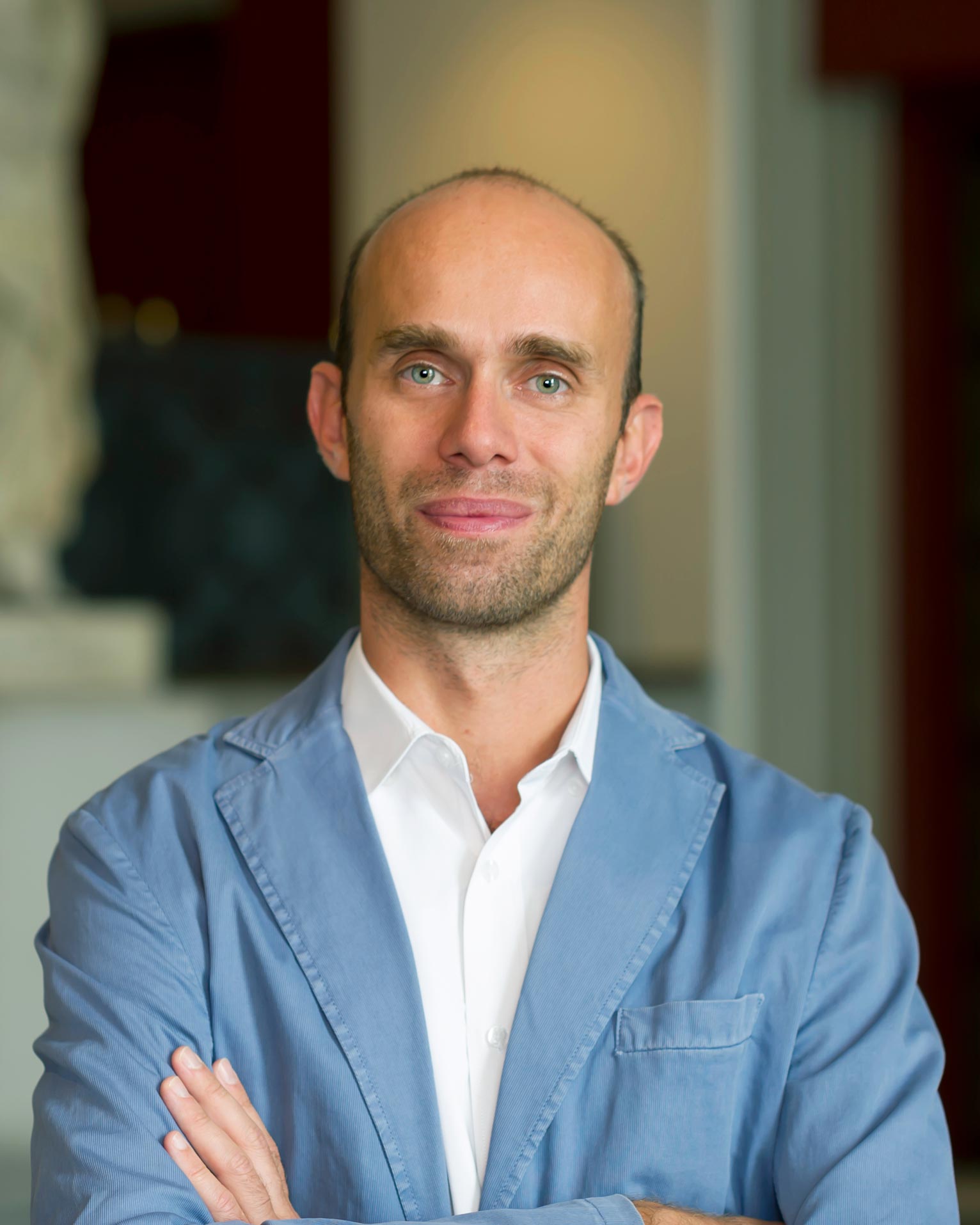Interview
Lorenzo Casaburi is joining the UBS Center as UBS Foundation Associate Professor of Development Economics. Professor Casaburi studies economic development in sub-Saharan Africa, with a focus on agricultural markets. His research combines extensive fieldwork, rigorous identification methods, and insights from behavioral economics, industrial organization, and contract theory. In this interview, he talks about his passion for his work and about the challenges and opportunities of conducting research in sub-Saharan Africa.
By Maura Wyler (Text)
Your research has a strong applied focus. How important is it to you that your work is translated into practice?
I – and I guess many of my colleagues – came to development economics because it combines intellectually exciting questions with an opportunity to affect policies and investments that may improve the living conditions in emerging economies. This opportunity continues to be a driver of my research. Such an impact can only come as a collective effort, from strong collaborations between academics and other players in the development space.
In your studies, you combine extensive field research, rigorous identification methods and insights from behavioral economics, industrial organization, and contract theory. What is the benefit of this approach?
I think some of the most interesting research provides a continuous feedback loop: empirical “facts” motivate theorists to write new models and new theoretical predictions require continuous testing. In the case of development economics, this feedback has led to a lot of progress in understanding not only whether certain development interventions work or not, but also the mechanisms of why they work.
Your work focuses mainly on sub-Saharan Africa. What is the biggest challenge of doing research in these countries? Are there also opportunities?
The research mostly relies on the collection of primary data, for example through household or business surveys. These activities are expensive and funding from institutions like the Swiss National Science Foundation and other donors is crucial. The great opportunities stem from collaboration with local researchers, governments, NGOs, and the private sector, who are often interested in generating high-quality evidence for policy-making and social investments.
What do you see as the big open questions in development economics?
I work a lot on agriculture in Sub-Saharan Africa, the sector where most of the global poor live. An important question concerns the role of smallholder-based agriculture in the region. Should these countries push to increase agricultural productivity while maintaining this system or should they transition to large-scale agriculture and favor rural-urban migration? What are the economic and social consequences of these choices?
The UBS Center serves as a platform for dialogue between academia, business, politics, and the broader public, fostering continuous knowledge transfer. What urgent issues do you think we should discuss?
The large improvements many African countries have experiences along many development indicators, and old and new challenges they face. The implications of Switzerland for developing countries, both today and historically. The interaction between academic and other institutions in forming the next generation of development professionals.
Lorenzo Casaburi is joining the UBS Center as UBS Foundation Associate Professor of Development Economics. Professor Casaburi studies economic development in sub-Saharan Africa, with a focus on agricultural markets. His research combines extensive fieldwork, rigorous identification methods, and insights from behavioral economics, industrial organization, and contract theory. In this interview, he talks about his passion for his work and about the challenges and opportunities of conducting research in sub-Saharan Africa.
By Maura Wyler (Text)
Your research has a strong applied focus. How important is it to you that your work is translated into practice?

Contact
Lorenzo Casaburi is UBS Foundation Associate Professor of Development Economics at the Department of Economics, University of Zurich. His main line of research focuses on agricultural markets in Sub-Saharan Africa, with an emphasis on market structure, behavioral insights, and agricultural finance. He also works on state capacity, with an emphasis on tax enforcement and redistribution policies. For his research, he has received funding from the European Research Council (ERC Starting Grant), the Swiss National Foundation (Eccellenza Grant), USAID, and DFID, among others. Lorenzo holds a B.A. from the University of Bologna and a Ph.D. in Economics from Harvard. Before joining Zurich, he was a postdoc at Stanford SIEPR. He is a Research Fellow at CEPR and a Research Affiliate at BREAD, IGC, IPA, and J-PAL.
Lorenzo Casaburi is UBS Foundation Associate Professor of Development Economics at the Department of Economics, University of Zurich. His main line of research focuses on agricultural markets in Sub-Saharan Africa, with an emphasis on market structure, behavioral insights, and agricultural finance. He also works on state capacity, with an emphasis on tax enforcement and redistribution policies. For his research, he has received funding from the European Research Council (ERC Starting Grant), the Swiss National Foundation (Eccellenza Grant), USAID, and DFID, among others. Lorenzo holds a B.A. from the University of Bologna and a Ph.D. in Economics from Harvard. Before joining Zurich, he was a postdoc at Stanford SIEPR. He is a Research Fellow at CEPR and a Research Affiliate at BREAD, IGC, IPA, and J-PAL.